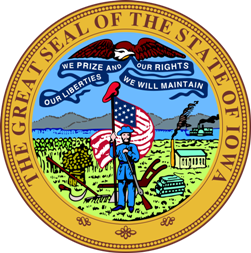How Many Presidential Campaigns End After the Iowa Caucuses?
Whether faring well, so-so, or even poorly in the caucuses, more than 90 percent of presidential candidates remain in the race post-Iowa

But this cycle there is speculation that even a third place finish for Florida Governor Ron DeSantis in the GOP caucuses on Monday would not be good enough for him to move forward considering the amount of resources he poured into the state plus his low standing in the polls in the Granite State and nationally.
The aforementioned saying implies that a good number of candidates – either in the lower tier or those in the higher tier who perform well below expectations – suspend their campaigns shortly after Iowa.
But has that been the case?
Not quite.
Smart Politics reviewed campaign exit dates of more than 150 Democratic and Republican presidential candidates with active campaigns at the time of the Iowa caucuses since 1972 and found that less than 10 percent dropped out of the race within a week after the Hawkeye State voting (13 of 152 candidates, or 8.6 percent).
On the Democratic side, just five of 87 candidates suspended their campaigns within seven days after Iowa (5.7 percent). Four did so within one day of the vote and a fifth within a week:
- 1976 (January 19): Former North Carolina Governor Terry Sanford (January 26)
- 2004 (January 19): Missouri U.S. Representative Dick Gephardt (January 20)
- 2008 (January 3): U.S. Senators Chris Dodd of Connecticut and (January 3) and Joe Biden of Delaware (January 3)
- 2016 (February 1): Maryland Governor Martin O’Malley (February 1)
[Note: New Mexico Governor Bill Richardson technically withdrew within a week after Iowa in 2008, but that was only because the New Hampshire primary was held just five days after the caucuses on January 8th. Richardson dropped out two days after New Hampshire on January 10th.]
During the 2020 cycle, each of the 11 candidates who were still campaigning on February 3rd when the caucuses were conducted remained in the race through at least the New Hampshire primary.
There has been a bit greater attrition post-Iowa on the Republican side, but an average of seven out of eight candidates have still stuck around.
Since the first Republican Iowa caucuses in 1976, just eight of 65 candidates withdrew within a week of the voting (12.3 percent). Two did so within a day and six others within seven days:
- 1988 (February 8): Former U.S. Secretary of State Alexander Haig (February 12)
- 1996 (February 12): Texas U.S. Senator Phil Gramm (February 14)
- 2000 (January 24): Utah U.S. Senator Orrin Hatch (January 26)
- 2012 (January 3): Minnesota U.S. Representative Michele Bachmann (January 4)
- 2016 (February 1): Former Arkansas Governor Mike Huckabee (February 1), Kentucky U.S. Senator Rand Paul (February 3), and former Pennsylvania U.S. Senator Rick Santorum (February 3)
- 2020 (February 3): Former Illinois U.S. Representative Joe Walsh (February 7)
The post-New Hampshire primary attrition rate will be examined in a forthcoming post on this site.
Follow Smart Politics on X/Twitter.

Since 1972, how many times has a SECOND-PLACE finisher of the IA precinct caucuses ended her/his campaign _before_ the NH primary election?
(Hm, an argument may be made that DeSantis essentially placed THIRD in the 15 of 01 2024 Hawkeye State contest~)
DeSantis is the first! In 2020, Joe Walsh came within 77 votes (0.23 points) of Bill Weld for a very, very distant second in Iowa and dropped out four days later.
[…] How Many Presidential Campaigns End After the Iowa Caucuses? […]